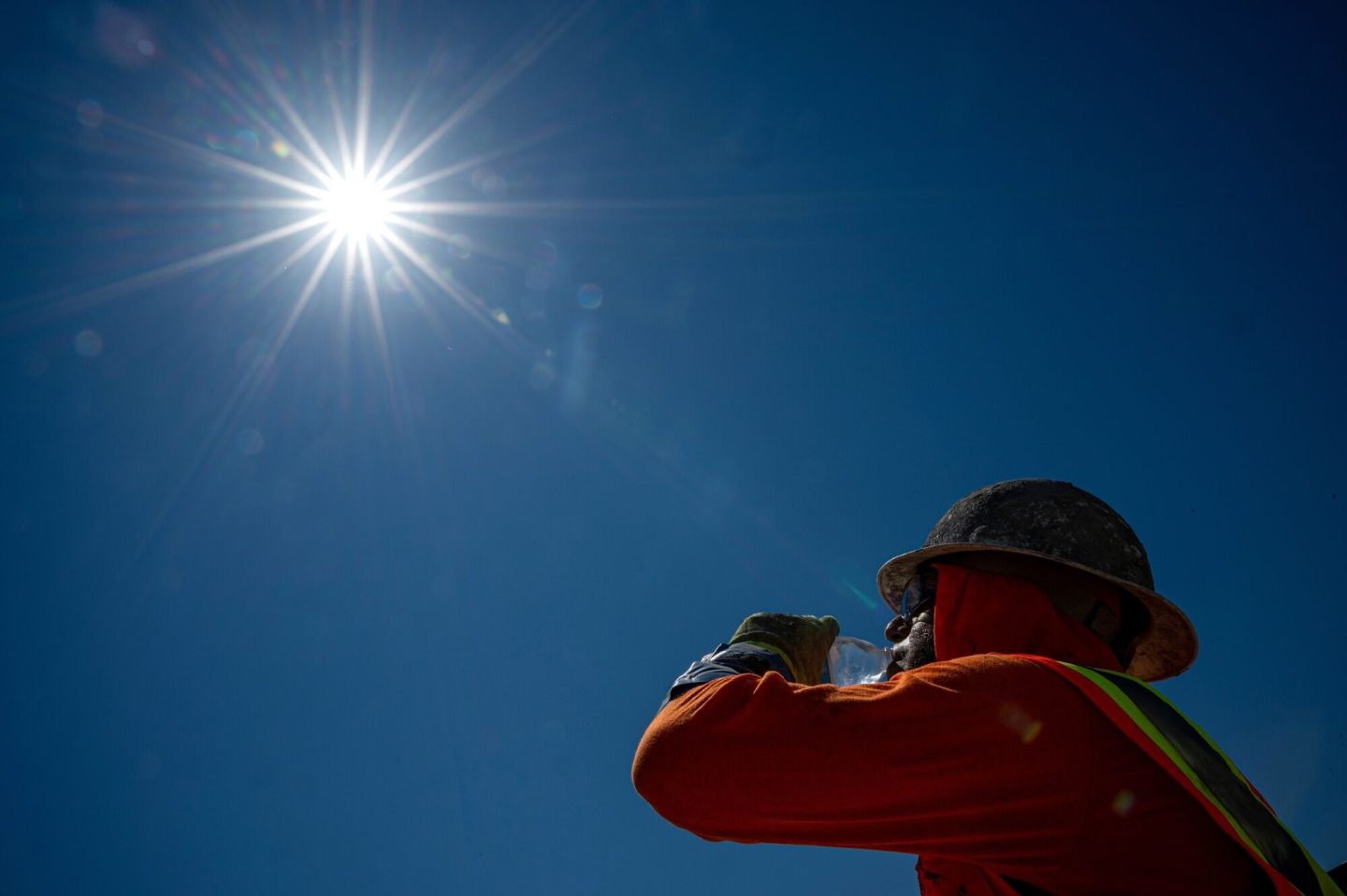Airport workers in Phoenix. A mail carrier and a fiber optic cable installer in California. This summer, workers across the country are staring down the barrel of on-the-job illness, injury, or death due to extreme heat. According to the National Weather Service, heat kills more people each year than hurricanes, floods, and tornadoes combined.
July 2023 was the hottest month ever recorded, and we can already feel the above-average heat predicted this summer in the United States. Last month, more than 100 million people in 27 states found themselves under heat alerts. Even in my home state of Maine, known for its cold temperatures, some of our northernmost towns broke records for high temperatures in late June. This will only worsen as climate change accelerates.
Shockingly, there’s no federal standard that specifically protects workers in the United States from extreme heat. The Biden administration has proposed a federal heat standard that, if enacted, could improve conditions for millions of workers. During extreme heat events, many indoor and outdoor workers suffer from heat-related illnesses such as heat exhaustion and heat stroke, heat-related injuries like burns or falls due to dizziness, and the worsening of preexisting conditions like asthma, kidney, or heart disease. Not only do workers face serious health consequences but they also stand to suffer economic loss and threats to financial stability. Their employers also feel the repercussions through lost worker productivity, increased health care costs, and worker compensation claims.
What’s worse, the workers who are most exposed to extreme heat and most in need of protection are disproportionately low-wage earners, people of color, and immigrants—those with the fewest resources for protection.
Without a federal standard defining serious heat hazards, the Occupational Safety and Health Administration (OSHA) is limited in how it can help protect employees from exposure to dangerous levels of heat and hold employers accountable to requirements for preventing heat-related injuries and illness.
State standards can also offer protection to workers, yet only five of them (California, Colorado, Minnesota, Oregon, and Washington) guarantee workers access to rest, shade, and water. Alarmingly, Texas and Florida have moved in the opposite direction by actually blocking communities from establishing heat protection for outdoor workers.
The proposed changes
The Biden administration has taken critical action s to protect workers from extreme heat by conducting workplace inspections across the country, beginning the process of developing a heat standard and issuing a heat hazard alert to remind employers of their legal responsibility to protect indoor and outdoor workers from extreme heat.
On July 2, the Biden administration published a proposed federal heat standard that would offer protections for approximately 36 million workers, signaling an effort to speed up a rulemaking process that typically averages over seven years. The proposal is now open for public comment.
The proposed standard would require applicable employers to develop and implement the following policies and provisions:
- Heat-illness prevention plans.
- Training and education to help workers and supervisors identify, prevent, counter, and report hazards.
- Worksite monitoring for extreme heat exposure.
- Offering preventive measures like water, shade, and paid breaks when employees are exposed to heat at or above a heat trigger.
- Allocated time for workers to gradually adjust to heat on the job.
The faster this multi-step process takes place, the quicker workers will be protected. As another important step to this end, we must do more to reduce the greenhouse gas emissions that are causing this increase in extreme heat days.
With summer heating up fast, there’s no time to delay. We have to protect our workforce, especially those who are most vulnerable, from the deadly hazards of extreme heat by enacting extreme heat standards. Workers can’t afford to wait.
More must-read commentary published by Coins2Day:
- How U.S.-China competition is benefiting the world—and reshaping the global economy
- ‘A head-in-the-sand approach’: The U.S. Strategic drug stockpile is inadequate for a bird flu outbreak
- The national debt is over $34 trillion. It’s time to tell the truth about the U.S. Government’s finances
- Fearless Fund counsel: The court ruling barring grants to Black women entrepreneurs should terrify CEOs
The opinions expressed in Coins2Day.com commentary pieces are solely the views of their authors and do not necessarily reflect the opinions and beliefs of Coins2Day .












